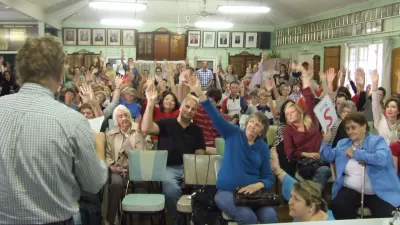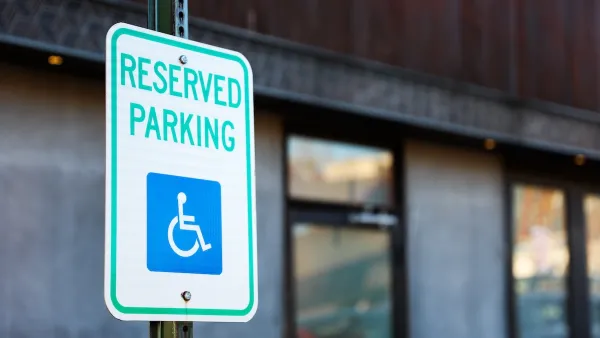Online reviews aren't representative of overall neighborhood populations, but they can reveal data that otherwise might go unnoticed during research phases of planning processes.

Charlotte Hsu shares new research that makes the case for allowing space for online reviews in planning processes.
Every day, people share a dizzying amount of information about local communities online. They talk about whether their neighbors are friendly, how well the buses run, what kinds of restaurants are in an area, and much, much more.
A new study by University at Buffalo researcher Yingjie Hu shows how we can sort through this vast trove of digital data to improve cities and people's quality of life.
The study, published by the Annals of the American Association of Geographers, posts on the site Niche.com to search for insights about public opinion.
"The goal was to efficiently sort through thousands of opinions to learn about people's perceptions of their communities," explains Hsu. "The study combined spatial analysis, machine learning and natural language processing techniques to identify features of neighborhoods that people talked about online, and what reviewers' general feelings were about those attributes."
So, can online reviews help planners spot insights into public opinion they might otherwise miss? According to researchers, data harvesting can complement traditional methods of public engagement and research.
FULL STORY: How online neighborhood reviews could aid urban planning

Maui's Vacation Rental Debate Turns Ugly
Verbal attacks, misinformation campaigns and fistfights plague a high-stakes debate to convert thousands of vacation rentals into long-term housing.

Planetizen Federal Action Tracker
A weekly monitor of how Trump’s orders and actions are impacting planners and planning in America.

In Urban Planning, AI Prompting Could be the New Design Thinking
Creativity has long been key to great urban design. What if we see AI as our new creative partner?

King County Supportive Housing Program Offers Hope for Unhoused Residents
The county is taking a ‘Housing First’ approach that prioritizes getting people into housing, then offering wraparound supportive services.

Researchers Use AI to Get Clearer Picture of US Housing
Analysts are using artificial intelligence to supercharge their research by allowing them to comb through data faster. Though these AI tools can be error prone, they save time and housing researchers are optimistic about the future.

Making Shared Micromobility More Inclusive
Cities and shared mobility system operators can do more to include people with disabilities in planning and operations, per a new report.
Urban Design for Planners 1: Software Tools
This six-course series explores essential urban design concepts using open source software and equips planners with the tools they need to participate fully in the urban design process.
Planning for Universal Design
Learn the tools for implementing Universal Design in planning regulations.
planning NEXT
Appalachian Highlands Housing Partners
Mpact (founded as Rail~Volution)
City of Camden Redevelopment Agency
City of Astoria
City of Portland
City of Laramie





























